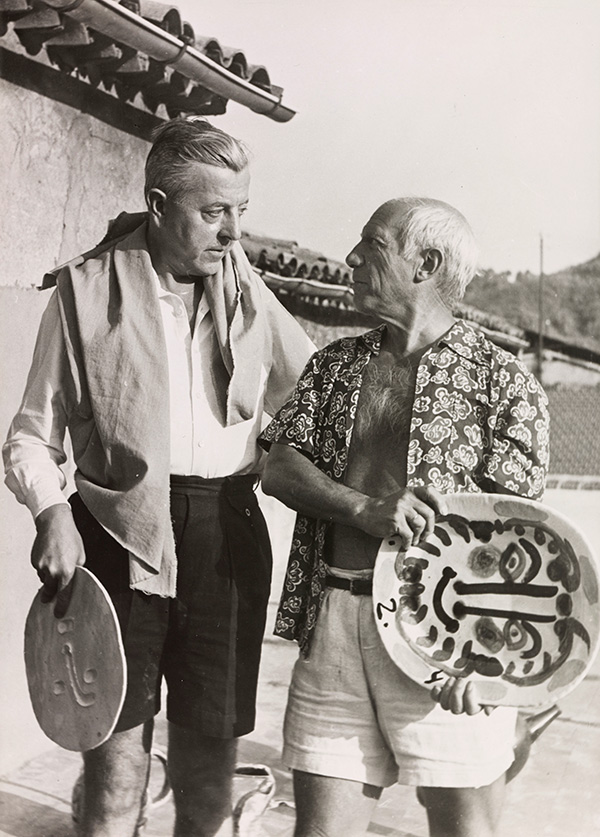Birth of friendship, successes of talent.
Prévert and Picasso? For generations of readers, their relationship is summed up in the poem “Picasso’s Promenade,” an account of the difficulties the “painter of reality” encounters when he “begins to realize that all the appearances of the apple are against him.”
“[...] It's just then that Picasso
who's going by there as he goes by everywhere
every day as if at home
sees the apple and the plate and the painter fallen asleep
What an idea to paint an apple
says Picasso
and Picasso eats the apple
and the apple tell him Thanks
and Picasso breaks the plate
and goes off smiling […]”[1]
By recording a reading of the poem, Yves Montand gave it ongoing recognition.
In the same collection, “Picasso’s Magic Lantern,” written in 1944, refers not only to themes from the master’s painting –particularly from his Cubist period– but also to his family ties: Málaga, Rue des Grands Augustins in Paris, Antibes. The only work mentioned is Guernica:
“[…] And the solar specter of low-salaried men surging forth all bloody with bloody guts from a worker’s house holding at arms’ length the poor glimmer of misery the bloody lamp of Guernica and discovering in the full day of its raw true light the frightful false tints of a discolored world worn threadbare bone-weary […]”
We know that the publication of this first collection, in which Picasso is a key subject, arose from the friendship between the poet and René Bertelé. Prévert had known the young professor, who later became a publisher, since the 1930s, when both their professional and their personal relationship began. They met again in Nice during the war, in the circles of the intellectual Resistance. “And I, who had turned down a lot of publishers, called René Bertelé; I don’t really know why. He’s a man who knows what it takes to make a book. That’s rare. He was the one who wanted to publish me. It hadn’t even occurred to me. I still don’t know why I agreed.”[2] Paroles, published by Point du jour (with a cover by Brassaï) was a great sales success: 5,000 copies were sold the first week, 25,000 the first year, and, by 1948, 60,000 copies had been printed.
Jacques Prévert (1900-1977) is best known for his poems, scripts, and film dialogue.





 Summary
Summary